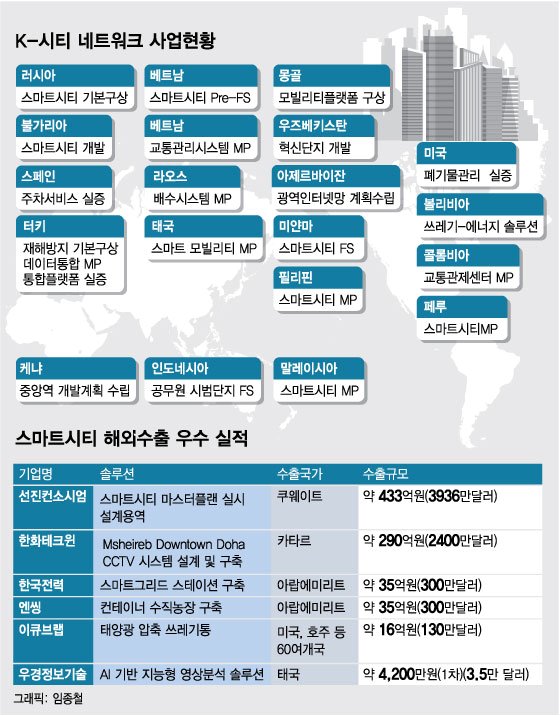[Smart City 4 years, so different] ③ From developing countries to developed countries, “Please share your experiences and know-how”

Korea's smart city technology is being used to prevent crimes in Turkey, a country on the other side of the world. The integrated platform Samsung SDS is demonstrating in Turkey is a system that prevents crime by linking local CCTV with police and fire stations in real time. When a crime scene is captured by CCTV, the video is immediately shared with the police station, enabling first responders. In 2020, at the request of Gaziantep City, Turkey, our company has established a general plan and is in the process of demonstrating it.
The strength of customized solutions for developing countries... A flood of MOU requests
Turkey is not the only country sending love calls to Korean smart cities. Last month, Mongolia's Vice Minister of Urban Development Zolboo Enkhtuvshin visited Korea and asked Vice Minister of Land, Infrastructure, and Transport Yun Seong-won to share experiences in developing a Korean-style smart city and support advanced technologies in the construction of a new city in Cushing Valley. Developing countries are scrambling to reach out for smart city exchanges with Korea. From 2016 to last year, Indonesia, China, Peru, Vietnam, Malaysia, the Netherlands, Thailand, Singapore, Brunei, and Uzbekistan have requested cooperation. Korea has signed a smart city development business agreement with them and is sharing know-how.
The reason why Korean smart cities are recognized for their competitiveness is that they have the foundation to present a customized model that responds to urban demands in developing countries. Developed countries have excellent technology, but have stopped developing new cities since 1980, and developing countries in the midst of development have a problem with technology shortage. On the other hand, Korea is the only country with excellent smart city technology with experience of short-term urban growth, so it can propose solutions that meet the needs of developing countries.
The government is also actively taking steps to help export excellent domestic solutions. 'World Smart City Expo (WSCE)', which has been held since 2016, is a place to showcase Korean smart cities on the global stage. Over 200 city delegations and companies from around the world discuss technology and exchange business. In 2019, 50 countries participated and a total of 2 visitors attended. The scale of business consultations conducted on site alone amounted to 5000 billion won. In the 2650 Expo, which was held online and offline due to the influence of Corona, 2021 companies participated and about 185 people watched.
Proven competitiveness in advanced countries such as the United States and international organizations
Recently, even international organizations are putting their strength in exporting Korean smart cities. The World Bank (WB) and MOLIT are working on the 'Korea-WB Global Smart City Partnership Program' to share our smart city technology and development experience with emerging countries. The Inter-American Development Bank (IDB) also signed an MOU with MOLIT to transfer our know-how to smart city development in Latin America. It is significant that international organizations have recognized the excellence of Korea's smart city.
The 'K-City Network', a global cooperation program that started in 2020 by the Ministry of Land, Infrastructure, and Transport, has discovered 2 projects through an international competition over the past two years. In last year's competition, advanced countries such as the United States, France, and Spain also requested local demonstration of our technology, proving the potential of K-City. Export outposts have been deployed in major countries such as Thailand, Vietnam, Indonesia, Turkey and Saudi Arabia. Through KOTRA (Korea Trade-Investment Promotion Agency), the 'Smart City Cooperation Center' is installed, and local projects are shared with Korean companies, while closely supporting the export of smart city technologies, products, and solutions.
Kim Bok-hwan, MOLIT's Urban Policy Officer, said, "The Korean smart city has the strength to participate in the entire process, from urban planning to design, construction, and maintenance, as a team between the private and public under intergovernmental cooperation." We will do our best to advance into the world of K-Smart City with the center of attention.”
[Joint Planning: Ministry of Land, Infrastructure, and Transport Money Today]



